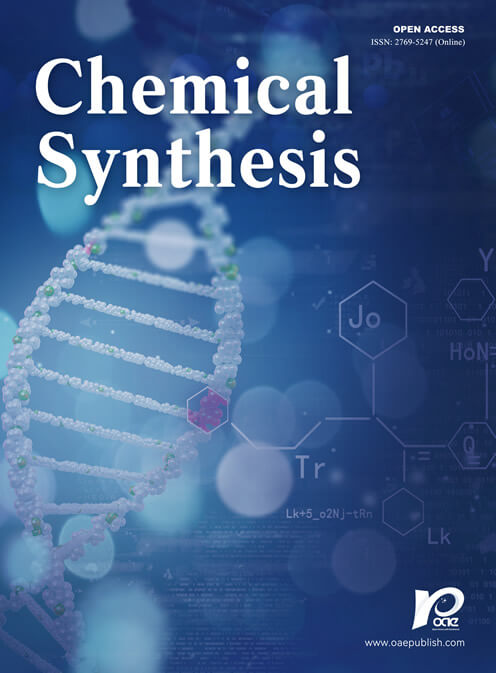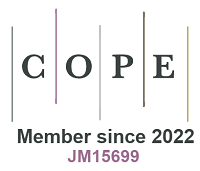REFERENCES
1. Álvarez, A.; Bansode, A.; Urakawa, A.; et al. Challenges in the greener production of formates/formic acid, methanol, and DME by heterogeneously catalyzed CO2 hydrogenation processes. Chem. Rev. 2017, 117, 9804-38.
2. Sun, R.; Liao, Y.; Bai, S.; et al. Heterogeneous catalysts for CO2 hydrogenation to formic acid/formate: from nanoscale to single atom. Energy. Environ. Sci. 2021, 14, 1247-85.
3. Mac Dowell, N.; Fennell, P. S.; Shah, N.; Maitland, G. C. The role of CO2 capture and utilization in mitigating climate change. Nature. Clim. Change. 2017, 7, 243-9.
4. Ramirez, A.; Gong, X.; Caglayan, M.; et al. Selectivity descriptors for the direct hydrogenation of CO2 to hydrocarbons during zeolite-mediated bifunctional catalysis. Nat. Commun. 2021, 12, 5914.
5. Li, N.; Zhang, X.; Shi, M.; Zhou, S. The prospects of China’s long-term economic development and CO2 emissions under fossil fuel supply constraints. Resour. Conserv. Recycl. 2017, 121, 11-22.
6. Mardani, A.; Streimikiene, D.; Cavallaro, F.; Loganathan, N.; Khoshnoudi, M. Carbon dioxide (CO2) emissions and economic growth: a systematic review of two decades of research from 1995 to 2017. Sci. Total. Environ. 2019, 649, 31-49.
7. Guan, C.; Pan, Y.; Ang, E. P. L.; et al. Conversion of CO2 from air into formate using amines and phosphorus-nitrogen PN3P-Ru(II) pincer complexes. Green. Chem. 2018, 20, 4201-5.
8. Jiang, X.; Nie, X.; Guo, X.; Song, C.; Chen, J. G. Recent advances in carbon dioxide hydrogenation to methanol via heterogeneous catalysis. Chem. Rev. 2020, 120, 7984-8034.
9. Liang, H. Q.; Beweries, T.; Francke, R.; Beller, M. Molecular catalysts for the reductive homocoupling of CO2 towards C2+ compounds. Angew. Chem. Int. Ed. Engl. 2022, 61, e202200723.
10. Zhao, S.; Liang, H. Q.; Hu, X. M.; Li, S.; Daasbjerg, K. Challenges and prospects in the catalytic conversion of carbon dioxide to formaldehyde. Angew. Chem. Int. Ed. Engl. 2022, 61, e202204008.
11. Wang, D.; Sun, X.; Yin, H.; Dong, H.; Liu, H.; Zhang, Y. Tuning selectivity of CO2 hydrogenation via support composition modification adjusted the activity reduction of H species over Ce1-xPrxO2-δ-supported metal (Ru, Rh) nanoclusters. ACS. Catal. 2024, 14, 10060-76.
12. Jessop, P. G.; Hsiao, Y.; Ikariya, T.; Noyori, R. Homogeneous catalysis in supercritical fluids: hydrogenation of supercritical carbon dioxide to formic acid, alkyl formates, and formamides. J. Am. Chem. Soc. 1996, 118, 344-55.
13. Federsel, C.; Boddien, A.; Jackstell, R.; et al. A well-defined iron catalyst for the reduction of bicarbonates and carbon dioxide to formates, alkyl formates, and formamides. Angew. Chem. Int. Ed. Engl. 2010, 49, 9777-80.
14. Lemmens, V.; Vanbergen, T.; O’Rourke, G.; Marquez, C.; De Vos, D. E. Cascade catalysis for the hydrogenation of carbon dioxide to methyl formate using a molecular Ru–phosphine complex and the metal–organic framework UiO-66 as heterogeneous acid. ACS. Appl. Energy. Mater. 2023, 6, 9153-8.
15. Sang, R.; Wei, Z.; Hu, Y.; et al. Methyl formate as a hydrogen energy carrier. Nat. Catal. 2023, 6, 543-50.
16. Scott, M.; Westhues, C. G.; Kaiser, T.; et al. Methylformate from CO2 : an integrated process combining catalytic hydrogenation and reactive distillation. Green. Chem. 2019, 21, 6307-17.
17. Kröcher, O.; Köppel, R. A.; Baiker, A. Highly active ruthenium complexes with bidentate phosphine ligands for the solvent-free catalytic synthesis of N,N-dimethylformamide and methyl formate. Chem. Commun. 1997, 453-4.
18. Darensbourg, D. J.; Ovalles, C.; Pala, M. Homogeneous catalysts for carbon dioxide/hydrogen activation. Alkyl formate production using anionic ruthenium carbonyl clusters as catalysts. J. Am. Chem. Soc. 1983, 105, 5937-9.
19. Ziebart, C.; Federsel, C.; Anbarasan, P.; et al. Well-defined iron catalyst for improved hydrogenation of carbon dioxide and bicarbonate. J. Am. Chem. Soc. 2012, 134, 20701-4.
20. Gowrisankar, S.; Federsel, C.; Neumann, H.; et al. Synthesis of stable phosphomide ligands and their use in Ru-catalyzed hydrogenations of bicarbonate and related substrates. ChemSusChem 2013, 6, 85-91.
21. Westhues, N.; Belleflamme, M.; Klankermayer, J. Base‐free hydrogenation of carbon dioxide to methyl formate with a molecular ruthenium‐phosphine catalyst. ChemCatChem 2019, 11, 5269-74.
22. Yu, K. M.; Yeung, C. M.; Tsang, S. C. Carbon dioxide fixation into chemicals (methyl formate) at high yields by surface coupling over a Pd/Cu/ZnO nanocatalyst. J. Am. Chem. Soc. 2007, 129, 6360-1.
23. Wu, C.; Zhang, Z.; Zhu, Q.; Han, H.; Yang, Y.; Han, B. Highly efficient hydrogenation of carbon dioxide to methyl formate over supported gold catalysts. Green. Chem. 2015, 17, 1467-72.
24. Ayodele, O. B.; Tasfy, S. F. H.; Zabidi, N. A. M.; Uemura, Y. Co-synthesis of methanol and methyl formate from CO2 hydrogenation over oxalate ligand functionalized ZSM-5 supported Cu/ZnO catalyst. J. CO2. Util. 2017, 17, 273-83.
25. Corral-Pérez, J. J.; Bansode, A.; Praveen, C. S.; et al. Decisive role of perimeter sites in silica-supported Ag nanoparticles in selective hydrogenation of CO2 to methyl formate in the presence of methanol. J. Am. Chem. Soc. 2018, 140, 13884-91.
26. Corral-Pérez, J. J.; Copéret, C.; Urakawa, A. Lewis acidic supports promote the selective hydrogenation of carbon dioxide to methyl formate in the presence of methanol over Ag catalysts. J. Catal. 2019, 380, 153-60.
27. Gastelu, G.; Savary, D.; Hulla, M.; Ortiz, D.; Uranga, J. G.; Dyson, P. J. Autocatalytic O-formylation of alcohols using CO2. ACS. Catal. 2023, 13, 2403-9.
28. Federsel, C.; Ziebart, C.; Jackstell, R.; Baumann, W.; Beller, M. Catalytic hydrogenation of carbon dioxide and bicarbonates with a well-defined cobalt dihydrogen complex. Chemistry 2012, 18, 72-5.
29. Kerry Yu, K. M.; Tsang, S. C. A study of methyl formate production from carbon dioxide hydrogenation in methanol over a copper zinc oxide catalyst. Catal. Lett. 2011, 141, 259-65.
30. Kramer, S.; Bennedsen, N. R.; Kegnæs, S. Porous organic polymers containing active metal centers as catalysts for synthetic organic chemistry. ACS. Catal. 2018, 8, 6961-82.
31. Song, K. S.; Fritz, P. W.; Coskun, A. Porous organic polymers for CO2 capture, separation and conversion. Chem. Soc. Rev. 2022, 51, 9831-52.
32. Wang, G.; Jiang, M.; Sun, Z.; et al. Synergistic effect between monophosphine species for regioselective hydroformylation of olefin with CO2. Chem. Eng. J. 2023, 476, 146332.
33. Corral‐Pérez, J. J.; Billings, A.; Stoian, D.; Urakawa, A. Continuous hydrogenation of carbon dioxide to formic acid and methyl formate by a molecular iridium complex stably heterogenized on a covalent triazine framework. ChemCatChem 2019, 11, 4725-30.
34. Sun, R.; Kann, A.; Hartmann, H.; Besmehn, A.; Hausoul, P. J. C.; Palkovits, R. Direct synthesis of methyl formate from CO2 with phosphine-based polymer-bound Ru catalysts. ChemSusChem 2019, 12, 3278-85.
35. Wang, G.; Jiang, M.; Ji, G.; et al. Bifunctional heterogeneous Ru/POP catalyst embedded with alkali for the N-formylation of amine and CO2. ACS. Sustainable. Chem. Eng. 2020, 8, 5576-83.
36. Shen, Y.; Zheng, Q.; Chen, Z. N.; et al. Highly efficient and selective N-formylation of amines with CO2 and H2 catalyzed by porous organometallic polymers. Angew. Chem. Int. Ed. Engl. 2021, 60, 4125-32.
37. Hlatshwayo, Z. T.; Doremus, J. G.; Mcgrier, P. L. Hydrosilylative reduction of CO2 to formate and methanol using a cobalt porphyrin‐based porous organic polymer. ChemCatChem 2022, 14, e202200783.
38. Zhang, Z.; Zhang, L.; Yao, S.; et al. Support-dependent rate-determining step of CO2 hydrogenation to formic acid on metal oxide supported Pd catalysts. J. Catal. 2019, 376, 57-67.
39. Ma, W.; Xiong, W.; Hu, J.; Geng, J.; Hu, X. Highly efficient catalysts for CO2 hydrogenation to formic acid in water catalyzed by hydrophobic porous polymers containing stable metal–hydride. Green. Chem. 2024, 26, 4192-8.
40. Wang, W.; Li, C.; Yan, L.; Wang, Y.; Jiang, M.; Ding, Y. Ionic liquid/Zn-PPh3 integrated porous organic polymers featuring multifunctional sites: highly active heterogeneous catalyst for cooperative conversion of CO2 to cyclic carbonates. ACS. Catal. 2016, 6, 6091-100.
41. Wang, W.; Wang, Y.; Li, C.; Yan, L.; Jiang, M.; Ding, Y. State-of-the-art multifunctional heterogeneous POP catalyst for cooperative transformation of CO2 to cyclic carbonates. ACS. Sustainable. Chem. Eng. 2017, 5, 4523-8.
42. Wu, Y.; Wang, T.; Wang, H.; Wang, X.; Dai, X.; Shi, F. Active catalyst construction for CO2 recycling via catalytic synthesis of N-doped carbon on supported Cu. Nat. Commun. 2019, 10, 2599.
43. Zhao, K.; Wang, H.; Wang, X.; et al. Confinement of atomically dispersed Rh catalysts within porous monophosphine polymers for regioselective hydroformylation of alkenes. J. Catal. 2021, 401, 321-30.
44. Lu, Y.; Wang, J.; Yu, L.; et al. Identification of the active complex for CO oxidation over single-atom Ir-on-MgAl2O4 catalysts. Nat. Catal. 2019, 2, 149-56.
45. Cheng, D.; Wang, M.; Tang, L.; et al. Catalytic synthesis of formamides by integrating CO2 capture and morpholine formylation on supported iridium catalyst. Angew. Chem. Int. Ed. Engl. 2022, 61, e202202654.
46. Wei, X.; Zhang, X.; Jiang, Y.; et al. Ionic liquid boosting N-formylation of amines on polyoxometalate-stabilizing iridium single-atom catalysts. J. Catal. 2024, 433, 115493.
47. Gunasekar, G. H.; Yoon, S. A phenanthroline-based porous organic polymer for the iridium-catalyzed hydrogenation of carbon dioxide to formate. J. Mater. Chem. A. 2019, 7, 14019-26.
48. Yadav, M.; Linehan, J. C.; Karkamkar, A. J.; van der Eide, E.; Heldebrant, D. J. Homogeneous hydrogenation of CO2 to methyl formate utilizing switchable ionic liquids. Inorg. Chem. 2014, 53, 9849-54.
49. Sá, A. G. A.; Meneses, A. C. D.; Araújo, P. H. H. D.; Oliveira, D. D. A review on enzymatic synthesis of aromatic esters used as flavor ingredients for food, cosmetics and pharmaceuticals industries. Trends. Food. Sci. Technol. 2017, 69, 95-105.
50. Lee, B.; Gong, E.; Kim, M.; et al. Electronic interaction between transition metal single-atoms and anatase TiO2 boosts CO2 photoreduction with H2O. Energy. Environ. Sci. 2022, 15, 601-9.








